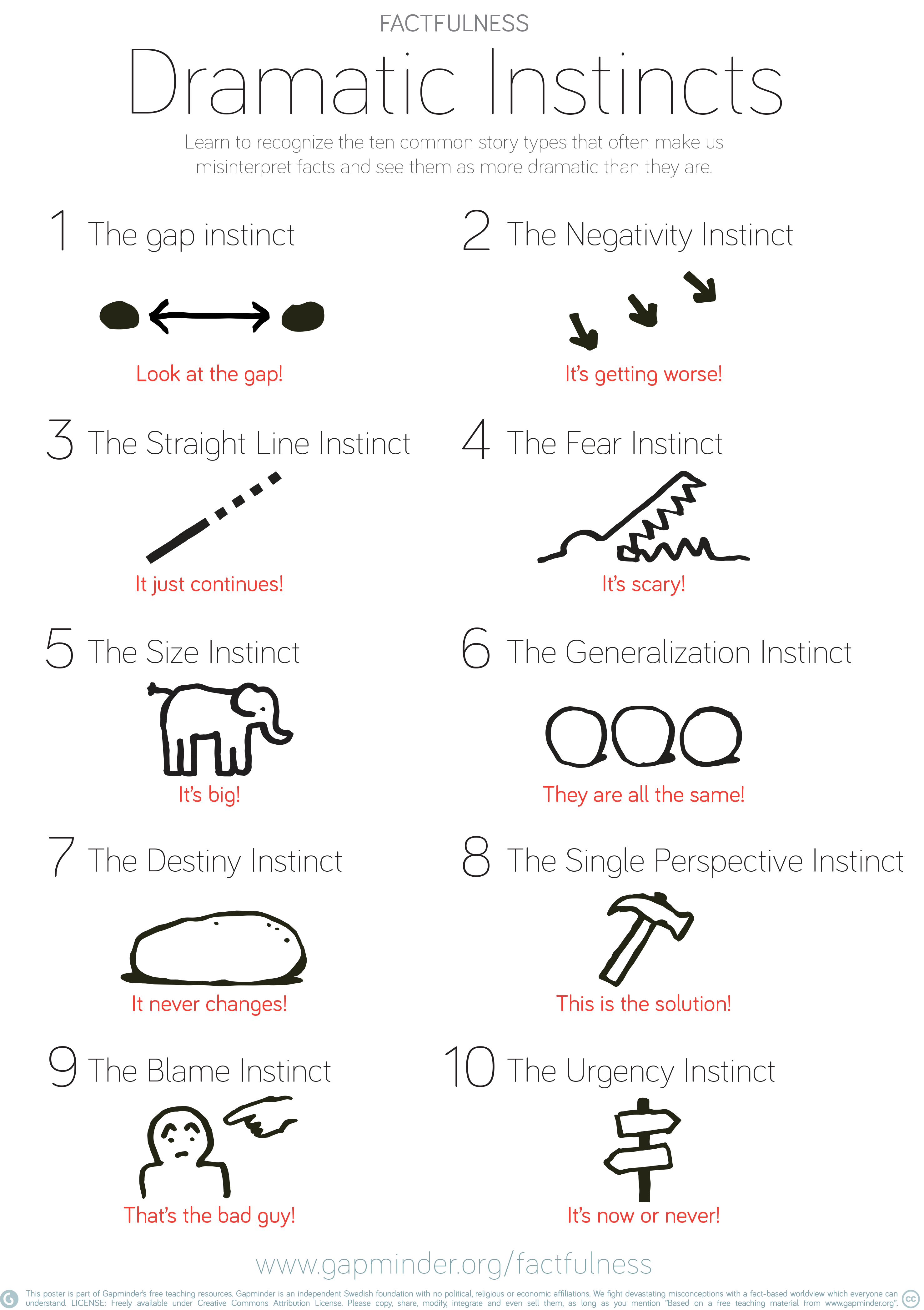Urban Journalism
Positive news for fighting ignorance
In an era defined by relentless media consumption, where negativity often saturates headlines and discerning truth from misinformation presents a daunting task, some media outlets spotlight stories of positivity and solutions-oriented approaches. These efforts reshape the dominant narrative and play a pivotal role in rebuilding trust and fostering informed citizenship.
Positive news and factual evidence profoundly impact the fight against ignorance and indifference. Urban journalism is uniquely positioned to inform communities about the positive impacts of urban changes and initiatives while investigating unaddressed local issues.
The 2023 Pulitzer Prizes for Journalism underscored the importance of local reporting, with five out of fifteen winners focusing on local angles. Among them, AL.com’s exploration of how Alabama’s Confederate heritage perpetuates racism and exclusion through tours of historical sites and The Miami Herald’s expose on the failure of Florida officials to deliver promised amenities to residents over decades stand out.
Initiatives such as the Solutions Journalism Network reinforce the need for a solutions-focused approach in journalism. Their focus on how individuals address problems and the lessons learned from their efforts is more critical than ever in today’s media landscape.
Hannah Ritchie, a Scottish data scientist and environmentalist born in the 1990s and named Scotland’s Youth Climate Champion, released her first book, Not the End of the World: How We Can Be the First Generation to Build a Sustainable Planet, at the beginning of 2024. Ritchie, a guest on Bill Gates’s latest podcast series, “Unconfuse Me with Bill Gates,” on 1 February 2024, had her book recommended by Gates for the 2023 Christmas holidays.
As a deputy editor of the online platform Our World in Data and a researcher at the University of Oxford, Ritchie considers herself a science communicator. She also runs her blog, Sustainability by Numbers. She argues that zooming out and examining the data reveals significant progress, putting us on track to achieve true sustainability for the first time in history. Ritchie envisions that “Ours could be the first generation that leaves the environment in a better state than we found it.”
Her approach is so fresh that it opens a hopeful scenario for changing narratives, not for showing “fake progress” but for avoiding the permanent discourse of “problem, problem, problem” to “problem, solution, solution.” She proposes to talk about sustainability as an opportunity, “not a sacrifice,” since most people would not get on board with “stripping” their lives back to have the lightest footprint possible. “We need a vision that we can get excited about,” Ritchie insists.
The narrative about sustainability is key because it is as if the majority equate it with a healthy environment. Still, there is a second component for her: “decent living standards.” In Gates’ words, “[…] if we don’t zoom out and look at the larger picture, we don’t just miss out on learning that progress has been made. We miss out on learning how.”
Her inspiration was Hans Rosling, a Swedish physician and academic dedicated to using data to explore global development issues and the upbeat track on key human wellbeing metrics. Ritchie’s book is a legacy of Rosling’s posthumous book, Factfulness: Ten Reasons We’re Wrong About the World – and Why Things Are Better Than You Think, published in 2018.
Rosling, a co-founder of the Gapminder Foundation, and his son, Ola Rosling, focused on fixing systematic misconceptions about global trends and exploring new ways to explain them through data visualisation. The most exciting part of Gapminder is the “Ignorance Project,” which aims to identify misconceptions about global issues. They ask questions to the public in many countries, check data from reliable sources, and pinpoint the most significant global misconceptions. Gapminder then flips these misconceptions to become fact-based and promotes them through data visualisation tools, tests on various global topics, and teaching materials.
For journalists, Gapminder offers several tools, including “The Worldview Upgrader,” a collection of people’s biggest misconceptions about the Sustainable Development Goals (SDGs). This tool allows users to choose each SDG, check existing misconceptions, and test their biases against factual evidence. Gapminder also conducts specific studies on critical topics, such as the 2023 study on refugee misconceptions.


IF YOU MISSED IT
Catch the highlights of some uplifting news.
Advancements against malaria
Azerbaijan, Belize, and Tajikistan were declared malaria-free by WHO in 2023. In 2024, Cabo Verde became the first country to achieve this status, possibly followed soon by Ghana. In October 2023, WHO also approved a more affordable and effective malaria vaccine, the R21 vaccine, developed by the University of Oxford and the Serum Institute of India. It aims to protect vulnerable children at risk and has achieved a 75 per cent efficacy target. India set a record in 2023, witnessing an 85.1 per cent decline in malaria cases and an 83.36 per cent reduction in deaths from 2015 to 2022.
First African country with shared parental leave
South Africa made history in November 2023 by becoming the first country in Africa to introduce shared parental leave. Previously, only mothers were allowed four months of leave after childbirth or adoption, while fathers or partners were granted a maximum of ten days. With the new law, parents can choose how to divide the four-month leave between them. Experts have welcomed the step but criticised it for not aligning with the International Labour Organization’s recommendation of a minimum of 14 weeks of maternity leave. In this case, 16 weeks would be shared between two parents, meaning only eight weeks each.
Bhutan graduates from the list of Least Developed Countries
In December 2023, Bhutan officially exited the least developed countries (LDCs) category established by the UN General Assembly in 1971. Bhutan is the seventh country to achieve this change, following Botswana (1994), Cabo Verde (2007), Maldives (2011), Samoa (2014), Equatorial Guinea (2017), and Vanuatu (2020). This brings the total number of LDCs down to 45, 33 in Africa. Bhutan is also the world’s first carbon-negative country due to its extensive forests covering 70 per cent of its land.
We invite you to take some of the questions of the Gapminder test on Refugees. But before, have a look at the “Dramatic Instincts” on the next page.
1. Which of these countries hosts the largest share of refugess in relation to its population?
a. Germany
b. Lebanon
c. Sweden
2. In 2000, around 20% of all refugees worldwide fled to a high-income country. What was the number in 2021 (right before the war in Ukraine)?
a. Around 20%
b. Around 30%
c. Around 40%
3. In Uganda, Bangladesh, Colombia, and Türkiye, there were a total of 0.4 million refugees and migrants from humanitarian crises in 2010. What was the number in 2022?
a. Around 1 million
b. Around 5 million
c. Around 9 million
4. In 1990, people and governments gave $1.3 billion to UNHCR to help refugees across the world. How much was given in 2022? (UNHCR is the United Nations Refugee Agency. The amounts are adjusted for inflation.)
a. Slightly less
b. two times more
c. five times more
5. Of all refugees worldwide, in December 2022, what share had been in exile for more than four years?
a. Less than 30%
b. Around 45%
c. More than 60%
6. At the end of 2022, the world population was roughly 8 billion people. How many were international refugees, asylum seekers, or displaced abroad by humanitarian crises?
a. 46 million (0.6%)
b. 480 million (6%)
c. 720 million (9%)
7. In 2022, the UN spent around $6.4 billion to help refugees worldwide. How much did Western European governments spend to help refugees within West Europe?
a. Less than $3 billion
b. Around $5 billion
c. More than $20 billion
8. Of all Syrian refugees in Egypt, Lebanon, Jordan and Iraq in 2022, how many said they couldn’t afford their basic needs, such as food, medicine, and housing?
a. Around 30%
b. Around 60%
c. Around 90%
9. In 2022, many Western European governments spent more than $20 per person per day, to help newly arrived refugees. How much did the United Nations spend for refugee per day on average, in the rest of the world?
a. Around $1
b. Around $25
c. Around $45

 This publication was produced with the financial support of the European Union. Its contents are the sole responsibility of UCLG and do not necessarily reflect the views of the European Union.
This publication was produced with the financial support of the European Union. Its contents are the sole responsibility of UCLG and do not necessarily reflect the views of the European Union.